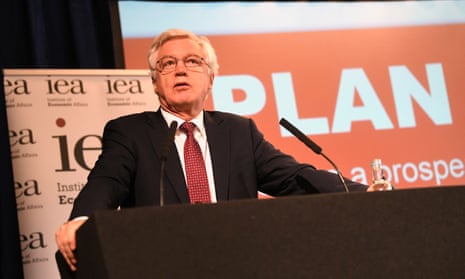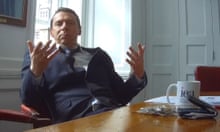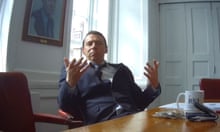Millions of dollars has been raised from anonymous US donors to support British rightwing thinktanks that are among the most prominent in the Brexit debate.
American donors are giving money to US fundraising bodies that pass the donations to four thinktanks in Britain. A Guardian analysis has established that $5.6m (£4.3m) has been donated to these US entities since 2008.
The Institute of Economic Affairs (IEA), the Adam Smith Institute, Policy Exchange and the Legatum Institute have all received financial support from US backers via this route.
The disclosure leaves the thinktanks facing questions as to whether wealthy Americans have undue influence in British politics, particularly over the form Brexit takes.
The UK thinktanks are some of strongest proponents of radical free trade deals with reduced regulation – positions likely to benefit big American businesses, which have opposed Europe’s tighter regulations since the 2008 financial crash.
They have a policy of not disclosing their donors, arguing they respect their backers’ right to privacy unless the backers wish otherwise. Critics say the lack of transparency allows unseen donors to influence political debate.
The charitable status of the thinktanks requires them to remain non-partisan, and they all insist they have not taken a line as institutions on whether the UK should leave the EU.
However, they have published or contributed to policy papers that advocate a Brexit deal that makes a clean break from European regulations.
The IEA, Adam Smith Institute and Legatum Institute are part of the Atlas Network, which says it connects “a global network of more than 475 free-market organisations in over 90 countries to the ideas and resources needed to advance the cause of liberty”.
The IEA has been prominent in the Brexit debate. A US entity, the American Friends of the IEA, has raised at least $1.69m in the last decade.
The IEA has been a partner in a flurry of activity by the caucus of hardline pro-Brexit MPs in the European Research Group in the weeks building up to the Conservative party conference.
It published a paper this week authored by the head of its trade and competition policy unit, Shanker Singham, a lawyer and former Washington lobbyist. The report said the UK could “deliver the Brexit prize” by negotiating radical free trade agreements with the US and other countries. It called for the removal of tariffs and many of the controls put on financial services including hedge funds and banks post-crash.
It also called for opening all services to competition, including the health service, scrapping many of the EU regulations on data protection, pharmaceuticals and food safety and chemicals, and reducing taxes. It suggested civil servants could be replaced by politically appointed trade negotiators.
The IEA declines to identify its donors, but in the past they are known to have included fossil fuel and tobacco companies and the casino and financial services industries.
Undercover filming by Greenpeace this year recorded Michael Carnuccio, the head of an Oklahoma-based libertarian thinktank, the E Foundation, saying his organisation was planning to pour cash into the IEA. He told a Greenpeace investigator his organisation aimed to raise between $250,000 and $400,000 to campaign on Brexit, most of which it would “ship over to the UK”.
In response, the IEA said it did not recognise the sums of money being suggested by the E Foundation and it had not received any cash from US businesses in relation to its work on trade and Brexit.
Greenpeace investigators recorded the IEA director, Mark Littlewood, saying he and Singham had facilitated access for US donors with fossil fuel, agribusiness and real estate interests to key Brexiter MPs, senior officials and the then Brexit minister Steve Baker.
The IEA has said it was “spurious to suggest that the IEA is engaging in any kind of ‘cash for access’ system”, while Baker said he had met the IEA in his political capacity to discuss trade relations with the US.
After the disclosures, the Charity Commission opened an inquiry into the IEA to examine concerns about its political independence. Whitehall’s lobbying tsar, Alison White, is also examining whether the IEA should be registered as a lobbyist.
Robert Boyd, the director of the American Friends of the IEA, said it was run independently of the British thinktank. “The board used donations received in 2017 to fund grant applications from the IEA for specific projects as well as to cover AFIEA’s own operating expenses,” he said.
It is unclear how much of the money raised by the American entities is passed to the British thinktanks, due to the secrecy surrounding the donors.
The US affiliate of another British thinktank, the Legatum Institute, has raised $538,000 since it was set up in 2014. Singham previously worked at Legatum, where he was said to have helped Boris Johnson and Michael Gove draft a letter to the prime minister pushing for a hard Brexit.
Legatum was compelled by the Charity Commission to take down one of its reports on Brexit after it was deemed to be too partisan and to breach the thinktank’s charitable status.
Legatum declined to say what specifically the US money was used for, but insisted it complied with rules governing charities in the US and UK. “We are a global thinktank committed to creating pathways from poverty to prosperity. It is therefore hardly surprising that our work has some global supporters,” a spokesperson said.
Singham said this year that he was supported by a three-year, $1.1m research grant from the US libertarian and religious right Templeton Foundation. It is not clear through which thinktank, if any, this cash is channelled.
The Adam Smith Institute has raised $1.4m from American donors since 2008. This month it partnered with another UK thinktank, the Initiative for Free Trade, and US libertarian thinktanks to launch a blueprint for a free trade deal between the UK and US.
The blueprint called for opening up the NHS to competition from US healthcare companies and a bonfire of EU regulations that provide higher standards of environmental and consumer protections than in the US.
The Adam Smith Institute said the funds were spent on the making of a film about Magna Carta, with money from the Templeton Foundation, and studentships.
US funders have given $1.95m to the American Friends of Policy Exchange since 2011. The centre-right thinktank, co-founded by Gove, has also advocated a clean break from the EU and the European Economic Area.
Policy Exchange declined to say what the US money was used for. A spokesman said: “The decision of a donor to remain anonymous does not give any right to commission specific research projects, or any editorial control or veto over the content of our work.”




